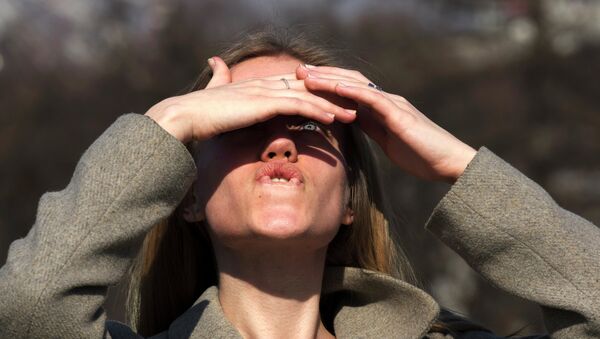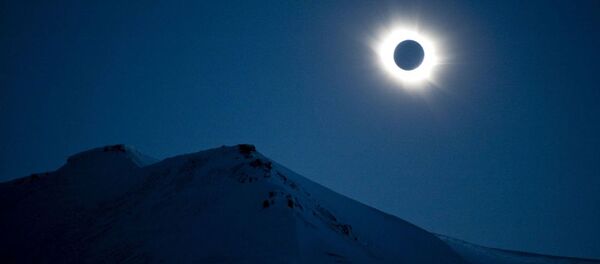On August 21, 2017, millions of people across the United States will have a once in a lifetime chance to observe Mother Nature’s most wondrous spectacle, a total solar eclipse. For the first time in 99 years the total phase of the solar eclipse will be visible from a narrow path spanning the entire territory of the United States from the West Coast to the East Coast.
Americans will have to wait until August 12, 2045 for another glimpse of an eclipse similar to this year’s.
Curiosity Overcomes Anxiety
In an interview with Sputnik, psychotherapist Vladimir Faizilberg, an adjunct professor at Moscow’s Institute of Psychoanalysis, said that solar eclipses have always made people and animals feel that something bad is on the horizon.
"Living creatures feel uneasy without sunlight. Animals get jittery, small insects just freeze and bigger ones get nervous and start looking for a place to hide,” Vladimir Faizilberg said.
Humans feel just the same, he added.
“People get nervous, their blood pressure shoots up and they feel a general sense of uneasiness. This is exactly how people feel prior to becoming neurotic,” he added.
He said that people feel the same when they find themselves in an unusual place, like for example, the Dead Sea with its unearthly, “lunar” landscape.
“That’s how I felt when I was in Sahara Desert where all you can see is sand and nothing but sand,” he said.
He added that fighting this sense of alarm is easy. All you need is to “get yourself interested” in an uncommon natural phenomenon like a solar eclipse.
"These two feelings – curiosity and interest – are able to absorb the sense of alarm. In the olden days people used to look at [a solar eclipse] through tainted glass, but nowadays we have sunglasses and more comprehensive means of observation,” Faizilberg assured.
No Harm
Sechenov Medical University professor Semyon Rapoport told Sputnik that a solar eclipse poses no health hazards because it does not last long.
National Health League expert Yekaterina Ivanova said that weather-sensitive people and those with cardiovascular problems can feel discomfort during sudden weather changes or magnetic storms.
“As far as eclipses go, whether solar or lunar, they do not produce any sudden electromagnetic discharges, so they can only impact one’s psycho-emotional state,” Yekaterina Ivanova emphasized.
A solar eclipse is a type of eclipse that occurs when the Moon passes between the Sun and Earth, and when the Moon fully or partially blocks the Sun.



